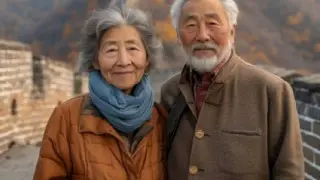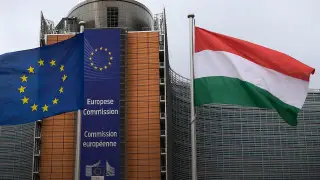
X/ChingteLai
Taipei: In a decisive win, Lai Ching-te, leader of the ruling Democratic Progressive Party (DPP), secured victory in Taiwan's presidential elections held on Saturday. The DPP, known for advocating Taiwan's distinct identity and rejecting China's territorial claims, saw Lai triumph despite Beijing's consistent portrayal of him as a perilous separatist.
Lai, the current vice president, faced off against two contenders for the presidency—Hou Yu-ih from Taiwan's largest opposition party, the Kuomintang (KMT), and Ko Wen-je, former Taipei Mayor representing the recently formed Taiwan People's Party (established in 2019). Both opponents gracefully conceded defeat, as reported by Reuters.
In a historic victory, William Lai, also known as Lai Ching-te, has been elected as the President of the Republic of China, following the 2024 presidential election. Lai, a Taiwanese politician and former physician, is hailed for his commitment to Taiwanese independence and his emphasis on strengthening ties with the United States and other liberal democracies. Observers view his presidency as a pivotal moment in solidifying a unique Taiwanese identity.
Born on October 6, 1959, in Wanli, a coastal town in northern Taipei County (now New Taipei City), Lai pursued his education in Taipei City. He earned degrees from National Cheng Kung University in Tainan and National Taiwan University in Taipei, specializing in rehabilitation. Furthering his studies, Lai obtained a Master's degree in Public Health from the Harvard School of Public Health, complemented by an internship at National Cheng Kung University Hospital. His expertise in spinal cord injuries led him to serve as a national consultant in this field.
Lai's political journey commenced with his involvement in Chen Ding-nan's support team during the 1994 electoral campaign for Governor of Taiwan Province. Subsequently, he entered politics directly, securing a seat in the 1996 National Assembly, representing Tainan City. Aligning with the New Tide faction, Lai contested the 1998 Legislative Yuan election as a Democratic Progressive Party candidate in Tainan City's second ward.
His victory marked the beginning of a successful political career, with subsequent re-elections in 2001, 2004, and 2008. Recognized for his legislative prowess, Lai received the esteemed title of Taiwan's "Best Legislator" four consecutive times, as acknowledged by the Taipei-based NGO Citizen Congress Watch.
Describing himself as a "pragmatic worker for Taiwanese independence," Lai Ching-te envisions a future where Taiwan not only asserts its distinct identity but also establishes robust alliances on the global stage. His commitment to fortifying relations with the United States and other liberal democracies sets the tone for his upcoming presidential term.
The elections, held on Saturday, were framed by China as a pivotal choice between war and peace. In the lead-up to the polls, the Kuomintang, Taiwan's opposition party, cautioned voters about potential unrest if Lai Ching-te were elected.
Contrary to concerns raised by the opposition, Lai affirmed his commitment to maintaining peace and the existing status quo across the Taiwan Strait. Additionally, he pledged to enhance the island's defenses and expressed a willingness to engage with China.
Ahead of Saturday's election, Taiwan accused China of an unprecedented campaign to interfere with the polls. Beijing's threat of new trade measures against the island heightened tensions in the already closely watched electoral process.
Lai, addressing reporters, emphasized that this election serves as a "testament to our commitment to democracy" and condemned China's alleged interference as the "most serious" to date.













Copyright © 2025 Top Indian News
